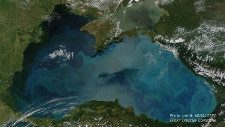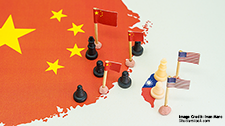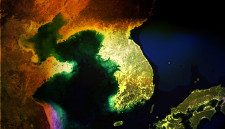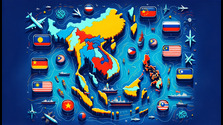Hong Kong sees signs of life amid political stasis

Joseph Yu-shek Cheng
At the beginning of 2023 Hong Kong followed mainland China as it dramatically relaxed COVID-19 related travel restrictions. This considerably improved the territory’s economic mood. The tourism industry and retail trade are expected to be immediate beneficiaries of the change.
The Hang Seng Index — an indicator of Hong Kong’s market performance — stayed above the 21,500 mark in the week before the Chinese New Year, a substantial rebound from its low of below 15,000 in 2022. Even the real estate market promised a little optimism, anticipating buyers from mainland China. Government statistics show that Hong Kong’s real GDP contracted by 3.5 per cent in 2022, and in January 2023 a Bloomberg survey predicted a growth rate of 3.3 per cent in 2023.
There is still concern that COVID-19 will continue to spread in mainland China and Hong Kong because of the relaxation of social restrictions. The business community is weighed by the danger of a global economic recession in 2023. Talent outflow also remains a worry. The government admitted that 2214 civil servants resigned in the first half of the 2022–23 financial year, compared with 3732 resignations — 2.1 per cent of the civil service workforce — in the 2021–22 financial year.
Despite attractive remuneration in the police force, there were still 5706 vacant positions in 2021–22, a rise of 8.5 per cent from the previous year. Many schools complained about a shortage of teachers because of emigration. The Chief Executive offered initiatives to attract external talent in his 2022 policy address.
Read this piece by Joseph Yu-shek Cheng at the East Asia Forum.
Related Publications
-
China as a Black Sea Actor: An Alternate Route
China’s international role has expanded rapidly in the last decades, and the Greater Central Asian region, Europe, and the Middle East, to which the Black Sea region (BSR) connects, are […]
-
Taiwan-PRC Crisis: What Cross-Strait Conflict Could Cost Europe
The escalating tensions between Taiwan and China pose significant economic and strategic challenges to the European Union, such as the inaccessibility of Taiwanese inputs, market, and capital. This issue brief […]
-
China as a Mediator in North Korea: Facilitating Dialogues or Mediating Conflicts?
China has arguably emerged as a major power militarily, politically, and economically, extending its influence globally and within its immediate region. This influence has been increasingly asserted, as seen in […]
-
Strategic Standoffs: How Repeated Games Illuminate the Future of South China Sea Disputes
Introduction The motivation to put this piece together was observing the recent bizarre and, dare I say, childish behaviour of the Chinese Coast Guard in the South China Sea (SCS), […]
-
The Political Split at the Heart of Taiwan’s Struggle against Foreign Disinformation
Taiwan’s struggle against foreign disinformation and concerns about China’s impact on its 2024 election has received much international attention recently. This issue brief examines the domestic and international politics behind […]




